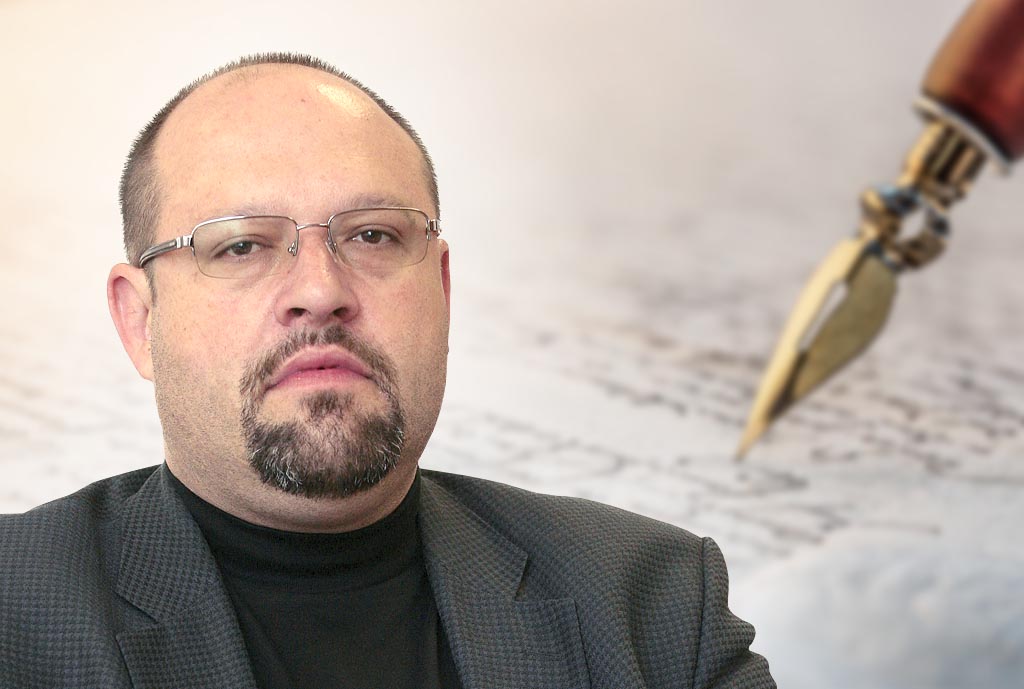By: Dr Matevž Tomšič
Mainstream media rarely miss an opportunity to demonstrate double standards. This means they portray similar or at least comparable events in different ways, depending on who the protagonists are. Or to be more specific: when an action is taken by the part of politics and the public deemed as “ours”, it is treated mostly benevolently. However, when the same is done by those considered “not ours”, it is judged with a significant amount of criticism or even hostility.
This is particularly problematic because the public broadcaster, which should be committed to the principles of impartiality, is leading the way. Now, during the time when “freedom” governs us and it has been thoroughly “depoliticised”, these standards are constantly being violated. Instead of comprehensive reporting, we are subjected to leftist propaganda, where the main target of criticism is not those in power but the largest opposition party and its leader.
The recent protest in front of the court in Celje has thoroughly exposed these double standards. To recap: the protest was against a highly controversial trial involving Janez Janša and his co-defendants, where much evidence suggests it is a similar or even greater fabrication and abuse for political purposes than the Patria case. During the protest, an incident occurred in which a car and an employee of RTV Slovenia were allegedly attacked. Police intervened, detaining and fining one of the protesters. The mainstream media, led by the national broadcaster, were quick to condemn the actions of the protesters. Accusations of “hate speech” against the judiciary and the media came from various associations and pro-government opinion leaders. Their collective message was clear: everything must be done to put an end to such actions.
As the writer of this article, I was not present at the scene, so I cannot give a definitive assessment of what actually happened during the incident, particularly regarding whether there was any violence by the protesters. However, the events were more than unusual. Much uproar was caused by an armed plainclothes police officer with his weapon visibly displayed. What is especially problematic is that the officer failed to identify himself, which he undoubtedly should have done according to the rules. Moreover, one might question why a vehicle from the national broadcaster was among the crowd. The explanation that this was the only route to their destination seems rather unconvincing. The police officer who directed the car there must have been aware that the markings of a media outlet viewed by most Janša supporters as heavily biased would provoke additional dissatisfaction among an already irate crowd.
Attacking people who are merely performing their journalistic duties is undoubtedly unacceptable. However, even if such an attack did occur in Celje, the current media outrage reeks of hypocrisy.
Let us recall that during the so-called cycling protests under the third Janša government, much worse incidents occurred. If protesters in Celje blocked one street, the cycling protests blocked the entire city centre of Ljubljana every Friday evening, completely halting traffic. Vandalism occurred, such as attacks on MP Jelinčič’s home, smashing signs, and attacking vehicles and crews from certain media outlets (like Nova24TV). One of the most commonly written words on protest signs at the time was “death”. Yet, the mainstream media, including the national broadcaster, did not condemn these actions. On the contrary, they actively promoted the protests and portrayed their leaders as heroes.
All those moralists now lamenting about the decline in the culture of dialogue were utterly silent then. Of course, at that time, it was “our” people causing the disturbances, those ideologically and politically on the “correct” side. They consider themselves “first-class citizens” and demand rights for themselves that they deny to others.

